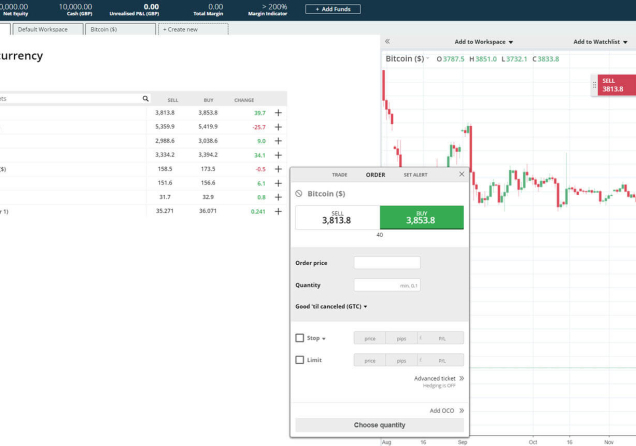Best Forex Brokers With No FIFO Rules
In forex trading, having the flexibility to adapt your strategy is essential for success. However, traders in certain countries, such as the United States, face a significant restriction known as the FIFO rule.
FIFO, which stands for "First In, First Out," forces traders to close their oldest positions first when managing multiple trades.
This restriction makes advanced strategies like hedging or partial exits much harder to execute.
This article breaks down everything you need to know about FIFO rules, including which regulators enforce them and why they exist. More importantly, we highlight some of the best forex brokers with no FIFO rules, giving traders more freedom to customise their approach.
What Are FIFO Rules?
FIFO, or "First In, First Out," is a regulatory requirement that dictates the order in which multiple trades on the same currency pair must be closed. If a trader holds several open positions on a currency pair such as EUR/USD, the rule mandates that the first position opened must also be the first one to close.
The purpose behind the FIFO rule is to bring greater transparency and fairness to the market. Regulators believe that by enforcing FIFO, they can reduce the risk of abusive practices by brokers and protect inexperienced retail traders from overly complex trading environments.
While this protection was well-intentioned, many traders find the FIFO rule restrictive. It prevents the simultaneous use of multiple positions for the same instrument in a strategic manner. Traders who prefer techniques like scalping, hedging, and partial closing of trades find it particularly inconvenient.
For example, a hedging strategy where a trader opens a second position opposite to their first to limit risk is practically impossible under FIFO rules. Traders are forced to close earlier trades first, undermining the entire purpose of the hedge. Similarly, closing trades based on changing market conditions becomes rigid and mechanical, rather than dynamic and responsive.
In short, FIFO limits strategic flexibility, and many traders outside of US regulation actively seek brokers that allow trading without this restriction.
Which Regulators Impose FIFO Rules?
The FIFO rule is not a universal standard. It is mainly enforced in the United States and by US-based regulatory organisations. The two primary regulators that require FIFO compliance are:
- The CFTC (Commodity Futures Trading Commission) - The CFTC is an independent US government agency that regulates futures and options markets, including retail forex. It mandates FIFO compliance for all forex brokers serving US clients.
- NFA (National Futures Association) - The NFA is a regulatory organisation for the US derivatives industry. It enforces CFTC regulations and ensures that retail forex brokers follow FIFO rules, among other requirements such as leverage caps and no hedging policies.
Brokers operating in the United States or those targeting American residents must follow these FIFO requirements strictly. Non-compliance could lead to severe penalties or loss of licenses. Outside the US, FIFO-style restrictions occasionally appear in specific cases:
- DFSA (Dubai Financial Services Authority) - While not a blanket FIFO rule, the DFSA requires brokers to maintain fair execution practices, which can sometimes result in FIFO-like limitations.
- EU MiFID Regulations - Some European brokers voluntarily apply FIFO-like policies to comply with the Markets in Financial Instruments Directive (MiFID II) best execution requirements, though this isn't a universal mandate.
Top Forex Brokers Without FIFO Rules
Below are some of the best forex brokers that allow trading without FIFO restrictions. They are regulated by reputable authorities and offer flexible trading conditions. Please note that none of these brokers accept U.S. clients, as FIFO rules are mandatory in the United States.
Exness
Exness has built a strong global presence and is regulated by several financial organisations around the world. It operates under the regulation of the FCA in the UK, the CySEC in Cyprus, the FSCA in South Africa, the CMA in Kenya, and the FSA in Seychelles, among others. Traders at Exness enjoy complete control over how they manage multiple trades because none of these regulators impose FIFO rules.
The broker offers diverse account options to suit different trading approaches. The Standard account provides spreads starting from 0.2 pips with zero commission fees. Similarly, the Standard Cent account offers commission-free trading with spreads from 0.3 pips.
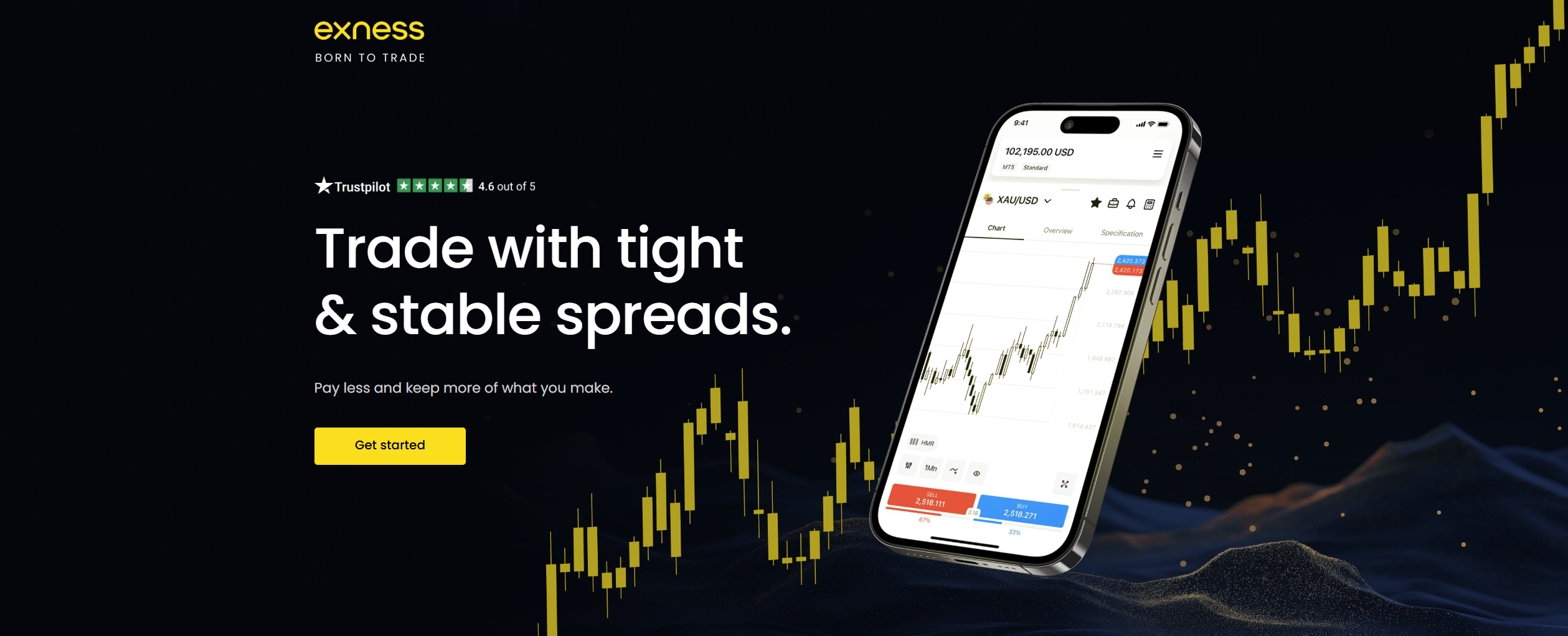
For traders seeking even tighter spreads, the Pro account delivers spreads from 0.1 pips with no commission. The Raw Spread account, on the other hand, features ultra-low spreads from 0.0 pips, but includes a commission of up to $3.50 per side per lot. Lastly, the Zero account offers spreads from 0.0 pips on the top 30 instruments, with commissions starting as low as $0.05 per side per lot.
One of Exness’s key advantages is its offering of unlimited leverage in certain jurisdictions, enabling very flexible risk management strategies. Traders can choose from a variety of trading products. The broker offers over 250 instruments that include CFDs on forex, metals, cryptocurrencies, indices, energies, and stocks. The trading platforms available to use include MetaTrader 4, MetaTrader 5, the Exness Trader app, and the Exness Terminal.
While Exness accepts traders from a wide range of countries, they do not accept UK and EEA retail clients.
Remember that Forex and CFDs available at Exness are leveraged products.
Their trading can result in the loss of your entire capital.
XM
XM is a globally recognised forex and CFD broker regulated by the CySEC, the ASIC, and the FSC. For traders seeking an environment without FIFO restrictions, XM stands out as a reliable option. The broker offers multiple account types to suit different trading styles and experience levels.
The standard account has a spread that starts from 1.6 pips for major currency pairs with no commission charged. For traders seeking lower spreads, the XM Ultra Low account has a spread beginning at just 0.8 pips with no commission charged. The Shares account charges a commission depending on the share and the size of the trade.
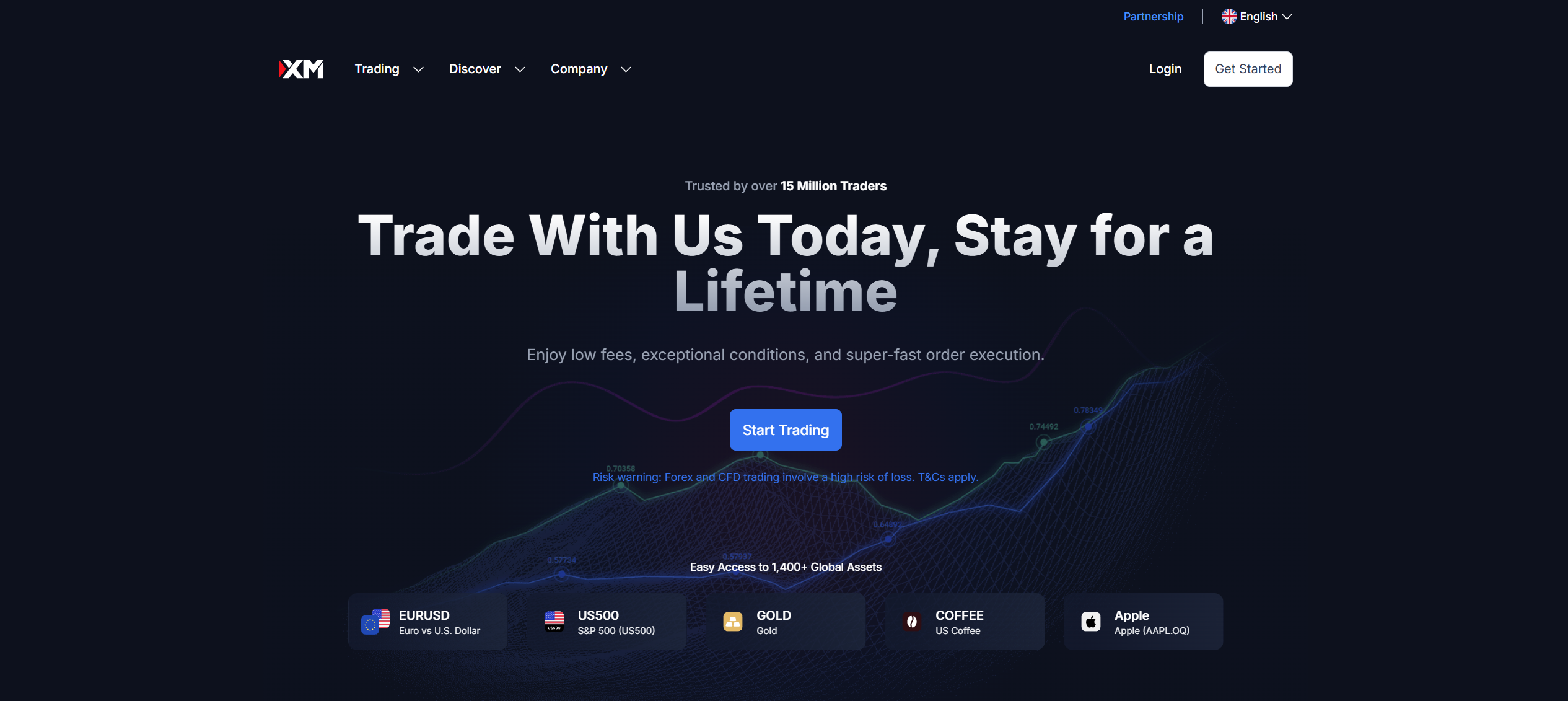
Beyond flexible account options, XM provides access to over 1,000 trading instruments. These include CFDs on forex, stocks, commodities, precious metals, indices, and cryptocurrencies. Traders can use both MetaTrader 4 and MetaTrader 5, benefiting from fast execution, mobile trading, and advanced charting tools. The broker also offers its proprietary XM Trading app for mobile trading.
With user-friendly platforms and strong customer support, XM is an excellent choice for traders who want greater flexibility in their strategies. Whether you're a scalper, day trader, or long-term investor, XM helps you trade without unnecessary limitations.
75.18% of retail investor accounts lose money when trading CFDs with this provider.
Pepperstone
Pepperstone is one of the leading forex brokers in the world, headquartered in Australia. This broker is under the regulation of several top-tier authorities, including the ASIC in Australia, the CMA in Kenya, the DFSA in Dubai, and the FCA in the United Kingdom. Since none of these regulatory bodies impose FIFO rules, Pepperstone clients enjoy full trading flexibility, allowing them to open and close trades in any order.
The broker offers two main account types, which include the Standard and the Razor accounts. The Standard account features commission-free trading with competitive spreads starting from 1.0 pips for major currency pairs. For those seeking tighter spreads, the Razor account provides raw, institutional-grade pricing starting from 0.0 pips with a commission per trade that depends on the trading platform.
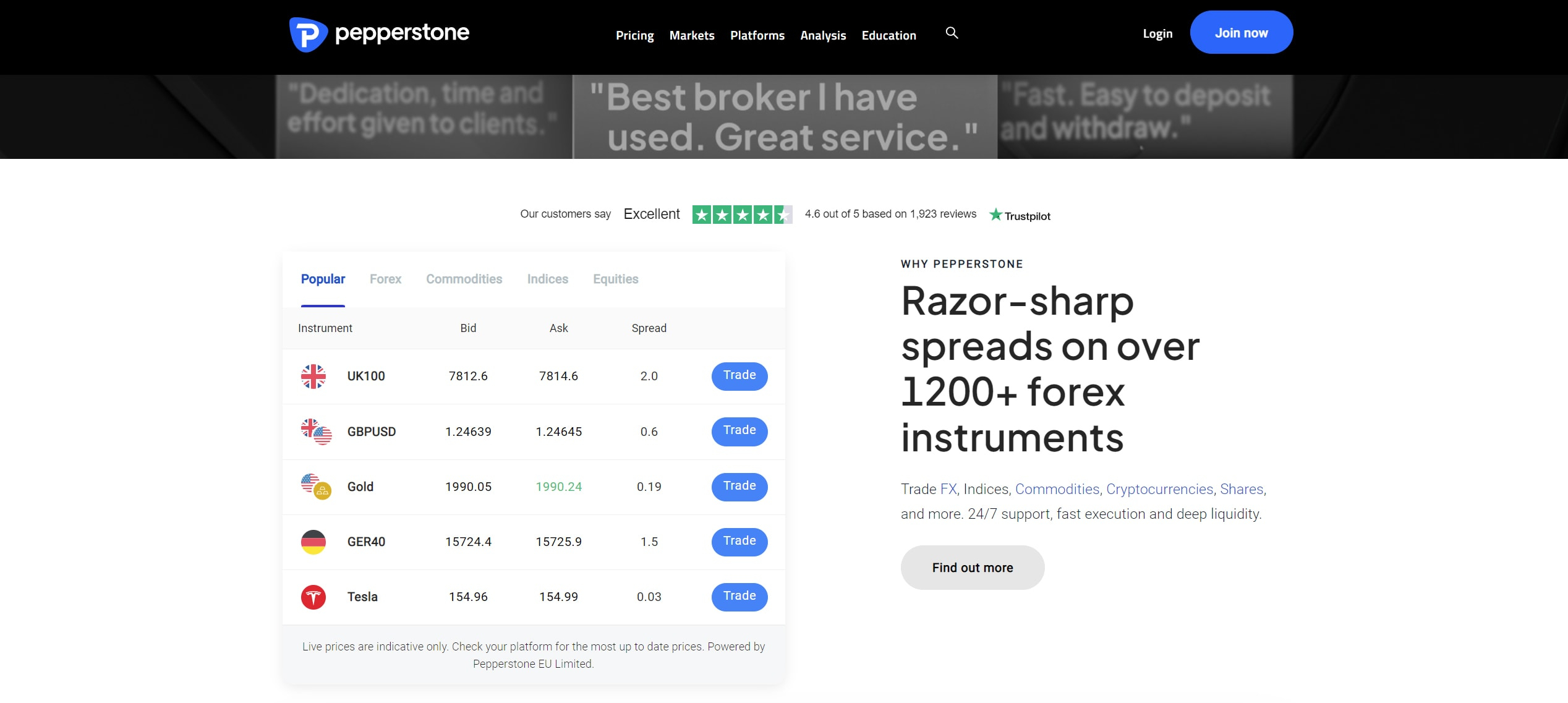
MetaTrader 4 and 5 users are charged a commission of $3.50, €2.60, £2.25, or CHF 3.30 per lot per side, depending on the currency of their account. TradingView and the Pepperstone Trading Platform users also pay a commission of $3.5 per side per lot. Meanwhile, cTrader users pay a lower commission of $3 per side per lot. For clients using TradingView, cTrader, or the Pepperstone Trading Platform with a non-USD account, commissions are automatically converted to the account's currency at the prevailing exchange rate.
The broker supports a broad range of over 1,400 instruments, including CFDs on forex pairs, commodities, indices, shares, currency indices, and cryptocurrencies. Pepperstone is particularly popular among scalpers, algorithmic traders, and those who need precise order execution without FIFO constraints. The ability to hedge, manage partial positions, and use expert advisors freely makes it a top choice for advanced trading strategies.
FP Markets
FP Markets is another top-tier broker offering trading without FIFO restrictions. This broker combines strong regulatory oversight with flexible conditions for all trading styles. This broker has regulations by the ASIC, the CySEC, the FSCA, and the CMA, among others.
Traders can choose between two account types: the Standard account and the Raw account. The Standard account offers spreads from 1.0 pips and is commission-free. In contrast, the Raw Account features raw spreads from 0.0 pips with a commission of $3 per side per lot.
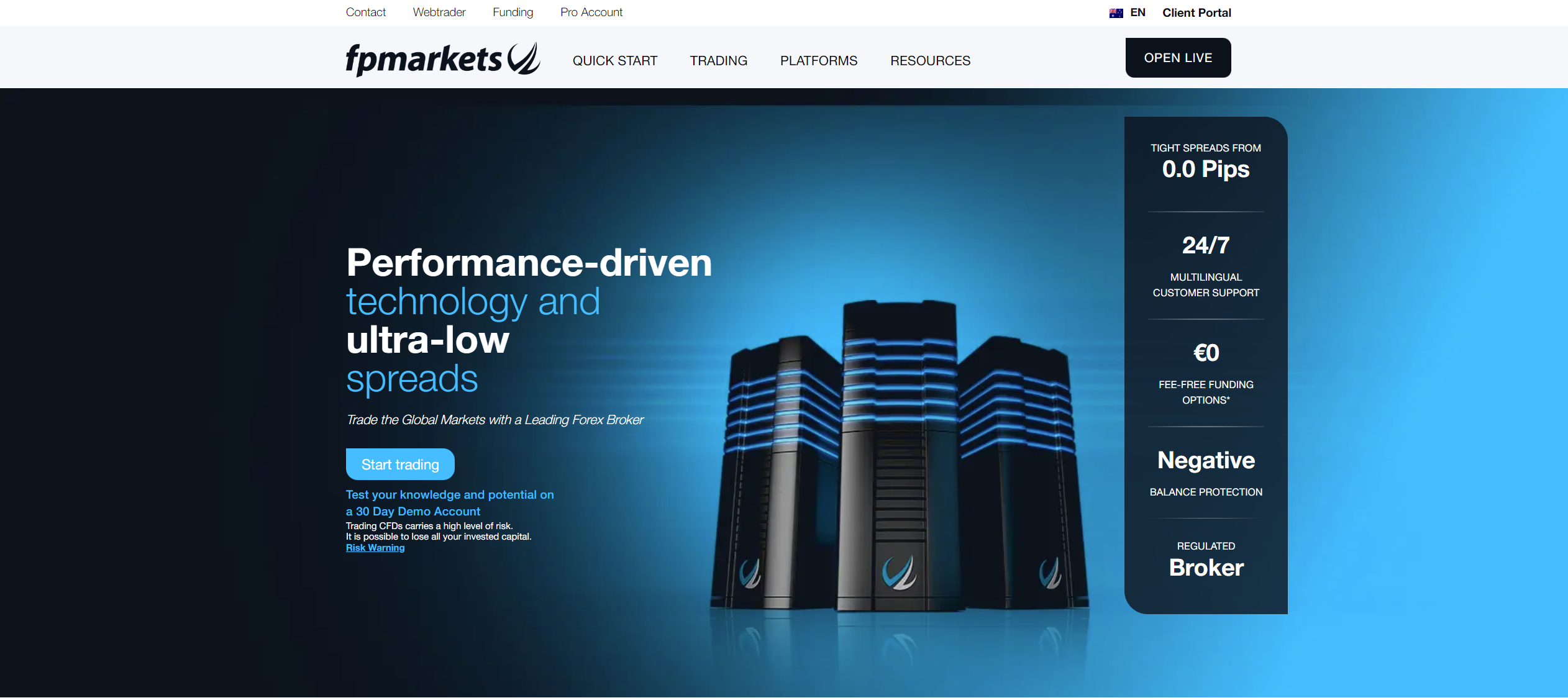
With 10,000+ instruments, FP Markets provides exceptional market diversity. Traders have access to CFDs on forex, shares, commodities, indices, and cryptocurrencies. To trade these market products, traders have access to MetaTrader 4, MetaTrader 5, cTrader, and TradingView, all of which offer advanced and professional trading environments.
72.44% of retail CFD accounts lose money
HFM
HFM is a multi-asset broker regulated by the FCA, the CySEC, the FSCA, and the FSA Seychelles. None of these regulators imposes FIFO compliance. The broker offers a wide variety of account options to suit different trading styles. The Premium account features spreads starting from 1.2 pips, while the Cent account offers lower spreads, starting at 1.0 pips. In regions where the Top-Up Bonus account is available, the account offers spreads from 1.4 pips.
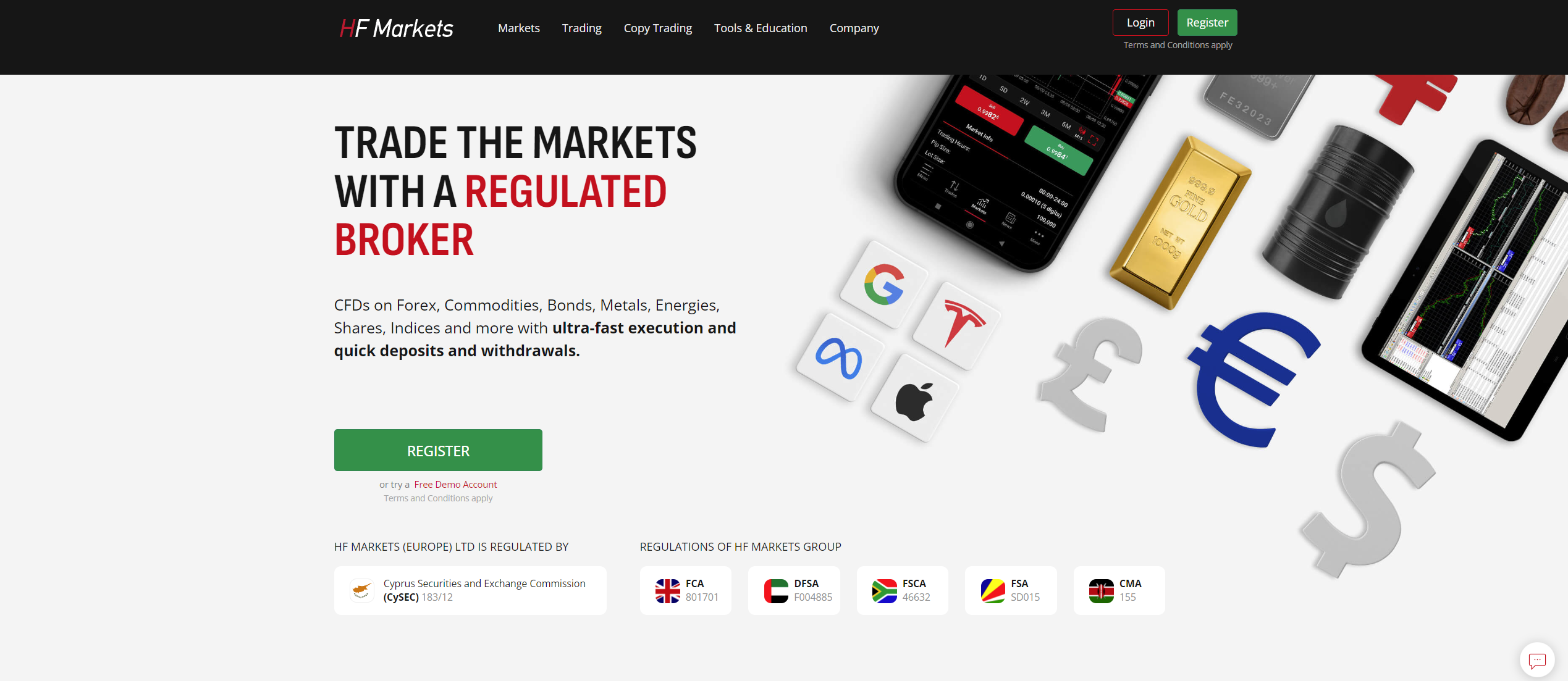
Traders looking for tighter spreads can opt for the Pro account, with spreads that start at 0.5 pips, or the Pro-Plus account, with spreads from 0.2 pips. None of these accounts incur commission fees on forex pairs. However, the Zero Spread account offers spreads from 0.0 pips but includes a commission of $3 per lot per side.
The broker offers an extensive selection of instruments, including CFDs on forex, energies, indices, metals, bonds, stocks, cryptocurrencies, commodities, and ETFs. Trading is facilitated through the reliable MetaTrader 4 and MetaTrader 5 platforms, alongside the broker’s proprietary HFM Platform.
68% of retail investor accounts lose money when trading CFDs with this provider.
Final Thoughts
Understanding FIFO rules is vital for traders who value tactical flexibility. While the rules were designed to protect traders and maintain fairness in US markets, they often hinder more advanced trading methods like hedging, partial closeouts, and customised risk management. Thankfully, many top brokers operate without FIFO restrictions.
The brokers mentioned here offer traders the ability to manage trades freely, use complex strategies, and hedge positions as needed. Nonetheless, the best choice of the broker will fully depend on a trader’s strategy and preferences. Before choosing a broker, it's important to consider both trading conditions and regulatory compliance. For traders who depend on multi-position strategies or hedging techniques, choosing a FIFO-free broker can dramatically enhance their trading experience.
Top-Tier Trusted Brokers
The table below contains links to 3rd party websites of our top partners from whom we receive compensation at no additional cost to you.















